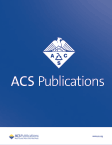摘要 PO1-17-06:通过 ShareForCures™(一个以患者为中心、旨在改善治疗效果的全国性乳腺癌研究登记处)推动研究参与的多样性
IF 3.4
Q2 PUBLIC, ENVIRONMENTAL & OCCUPATIONAL HEALTH
引用次数: 0
摘要
背景研究缺乏多样性,数据集规模小且各自为政,导致缺乏真实世界的证据,限制了我们为所有乳腺癌患者实施精准医疗和优化治疗与护理的能力。苏珊-科曼(Susan G. Komen ®)是一个乳腺癌倡导组织,也是美国政府以外最大的非营利性乳腺癌资助机构,她发起了 ShareForCures™ (SFC),这是一个安全的、以患者为中心的研究注册中心。该登记处旨在让来自不同背景的乳腺癌幸存者成为研究合作伙伴,促进他们的数据共享,从而推动创新性乳腺癌研究并改善治疗效果。SFC 已获得 IRB 批准,向任何居住在美国并确诊患有乳腺癌的成年人开放。SFC 设计为易于加入和在线访问。参与者将提供有关其诊断、生活质量、生活方式、家族史等方面的调查信息。其中一些人将被要求提供唾液样本,他们的医疗记录也将被检索。方法 患者权益倡导者推动了 SFC 发展的方方面面,从担任管理委员会成员到参与焦点小组并对平台构建进行测试。对登记处的成功而言,最重要的是确保我们与社区合作伙伴合作,开展乳腺癌幸存者焦点小组活动,并征求他们对以患者为中心的研究参与的意见和期望。这些焦点小组于 2020 年和 2021 年在全美范围内以面对面(4 人)和虚拟(8 人)的方式进行,其中 3 人使用西班牙语。从治理和技术实施到平台功能和流程,焦点小组得出的结论为 SFC 的建立提供了依据。为了获得对注册前信息的反馈,我们邀请了 432 位不同的乳腺癌幸存者参与了两个版本的 SFC 登陆页面、传单和社交媒体帖子的受众测试。其中一个版本更具技术性,另一个版本更具启发性/激励性。最后,我们对 56 名乳腺癌幸存者进行了 SFC 试点测试。这些幸存者通过个人汇报会就入职流程、同意书、调查问卷("关于你")和 SFC 平台提供了反馈意见。结果 焦点小组(N=64 名参与者)提出了四大主题:为特定参与者群体量身定制沟通方式、营造信任和透明的环境、解决对数据隐私和安全的担忧以及分享新闻和结果。对 SFC 资料进行的受众测试表明,大多数人都喜欢正面的个人信息,尽管强调科学、研究和数据的技术信息也受到好评。参与者将隐私和数据安全列为重点关注问题。在受邀参与 SFC 试点测试的 56 名乳腺癌幸存者中,31 人完全加入,3 人已开始但未完成加入,6 人拒绝加入。要完全加入,参与者必须接受知情同意书和医疗记录公开表,并完成 "关于你 "问卷调查。他们表示,入职流程和在线平台都很简单,仪表板是参与者保持参与的重要功能。他们还肯定了焦点小组强调的明确 SFC 研究目标和共享结果的重要性。结论 所有提供反馈意见的人都表示有兴趣分享自己的经验、启发他人的经验并加速研究。他们明白,这项研究可能不会使他们直接受益,但可以使其他人受益。结果表明,如果有人提出要求,他们愿意参与研究。科曼以患者为中心,让患者参与到开发 SFC 的各个步骤中,这种方法促进了信任、透明度和参与度,将增强 SFC 的影响力。引用格式:Jerome Jourquin、Stephanie McCoy、Barbara Segarra、Emily Marks、Carlita Proctor McIlwain、Brady Kazar、Melissa Troester、Kimberly Sabelko、Melissa Bondy。通过 ShareForCures™(一个以患者为中心的全国性乳腺癌研究登记处)推动研究参与的多样性,以改善研究结果 [摘要]。In:2023 年圣安东尼奥乳腺癌研讨会论文集;2023 年 12 月 5-9 日;德克萨斯州圣安东尼奥。费城(宾夕法尼亚州):AACR; Cancer Res 2024;84(9 Suppl):Abstract nr PO1-17-06。本文章由计算机程序翻译,如有差异,请以英文原文为准。
Abstract PO1-17-06: Driving diversity in research participation with ShareForCures™, a patient-centered, nationwide breast cancer research registry to improve outcomes
Background The lack of diversity in research and small and siloed datasets have led to a lack of real-world evidence, limiting our ability to practice precision medicine and optimize treatments and care for all breast cancer patients. Susan G. Komen,® a breast cancer advocacy organization and the largest non-profit breast cancer funder outside the U.S. government, launched ShareForCures™ (SFC), a secure, patient-centered research registry. The registry aims to engage breast cancer survivors from diverse backgrounds as research partners to facilitate sharing of their data to drive innovative breast cancer research and improve outcomes. SFC is IRB-approved and open to any adult living in the U.S. and diagnosed with breast cancer. SFC is designed to be easy to join and accessible online. Participants provide survey information about their diagnosis, quality of life, lifestyle, family history, etc. Some of them will be asked to provide a saliva sample, and their medical records will be retrieved. Methods Patient advocates have driven every aspect of the development of SFC, from serving on its governance council to participating in focus groups and beta-testing the platform build. Most important to the success of the registry was to ensure we worked with community partners to conduct breast cancer survivor focus groups and to solicit views and expectations about patient-centered research engagement. Those focus groups were conducted in 2020 and 2021 in-person (N=4) and virtually (N=8) across the U.S., with three conducted in Spanish. The findings that emerged from the focus groups informed the establishment of SFC, from governance and technology implementation to platform features and processes. For feedback on pre-enrollment information, we invited 432 diverse breast cancer survivors to participate in an audience testing of two versions of a SFC landing page, a flyer, and a social media post. One version was designed to be more technical and the other more inspiring/motivational. Finally, we pilot tested SFC with 56 breast cancer survivors. Those who joined provided feedback through individual debriefing sessions about the onboarding process, consent, the questionnaire (“About You”) and the SFC platform. Results Four main themes emerged from the focus groups (N=64 participants): tailor communications to specific groups of participants, create an environment of trust and transparency, address concerns about data privacy and security, and share news and results. Audience testing on SFC materials revealed the majority liked positive personal messaging, although technical messaging highlighting the science, research, and data was also favorably reviewed. Participants ranked privacy and data security as priority concerns. Of the 56 breast cancer survivors invited to participate in the pilot testing of SFC, 31 fully onboarded, three started but did not complete onboarding, and six declined. To fully onboard, participants had to accept the informed consent and medical records release forms and complete the “About You” questionnaire. They indicated the process and online platform were easy, and the dashboard was an important feature for participants to stay engaged. They also confirmed focus group emphasis on clarity regarding SFC research goals and importance of sharing results. Conclusions All individuals who provided feedback expressed interest in sharing their experiences, inspiring others’ experiences, and accelerating research. They understood that this research may not benefit them directly but that it could benefit others. The results indicate that people are willing to participate in research if asked. Komen’s patient-centered approach of involving patients at all steps of developing SFC fosters trust, transparency and engagement that will enhance SFC’s impact.
Citation Format: Jerome Jourquin, Stephanie McCoy, Barbara Segarra, Emily Marks, Carlita Proctor McIlwain, Brady Kazar, Melissa Troester, Kimberly Sabelko, Melissa Bondy. Driving diversity in research participation with ShareForCures™, a patient-centered, nationwide breast cancer research registry to improve outcomes [abstract]. In: Proceedings of the 2023 San Antonio Breast Cancer Symposium; 2023 Dec 5-9; San Antonio, TX. Philadelphia (PA): AACR; Cancer Res 2024;84(9 Suppl):Abstract nr PO1-17-06.
求助全文
通过发布文献求助,成功后即可免费获取论文全文。
去求助
来源期刊

ACS Chemical Health & Safety
PUBLIC, ENVIRONMENTAL & OCCUPATIONAL HEALTH-
CiteScore
3.10
自引率
20.00%
发文量
63
期刊介绍:
The Journal of Chemical Health and Safety focuses on news, information, and ideas relating to issues and advances in chemical health and safety. The Journal of Chemical Health and Safety covers up-to-the minute, in-depth views of safety issues ranging from OSHA and EPA regulations to the safe handling of hazardous waste, from the latest innovations in effective chemical hygiene practices to the courts'' most recent rulings on safety-related lawsuits. The Journal of Chemical Health and Safety presents real-world information that health, safety and environmental professionals and others responsible for the safety of their workplaces can put to use right away, identifying potential and developing safety concerns before they do real harm.
 求助内容:
求助内容: 应助结果提醒方式:
应助结果提醒方式:


